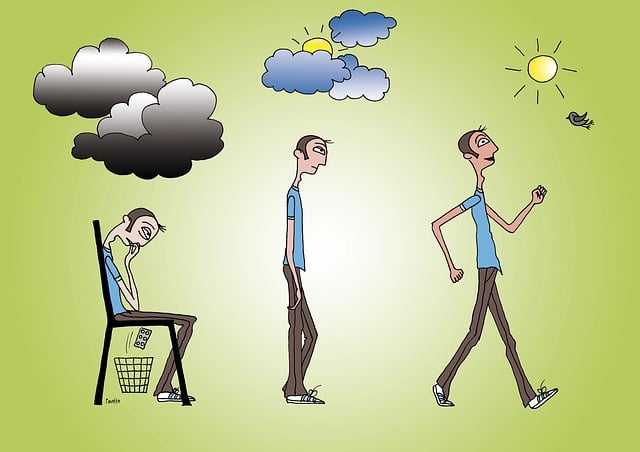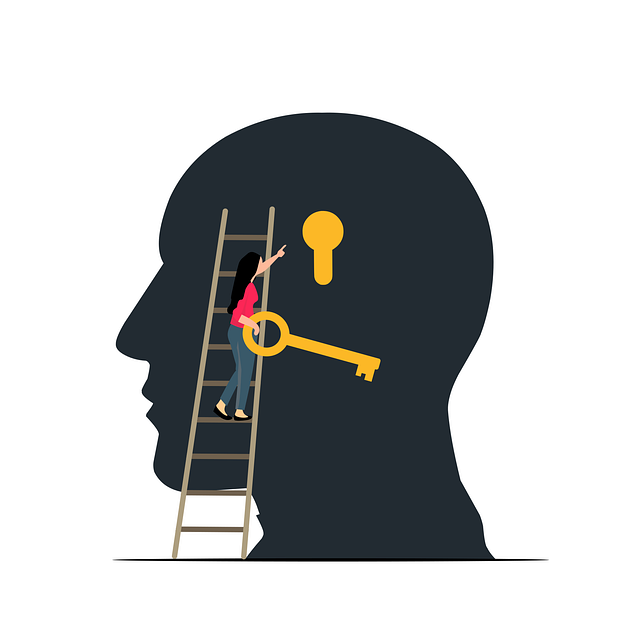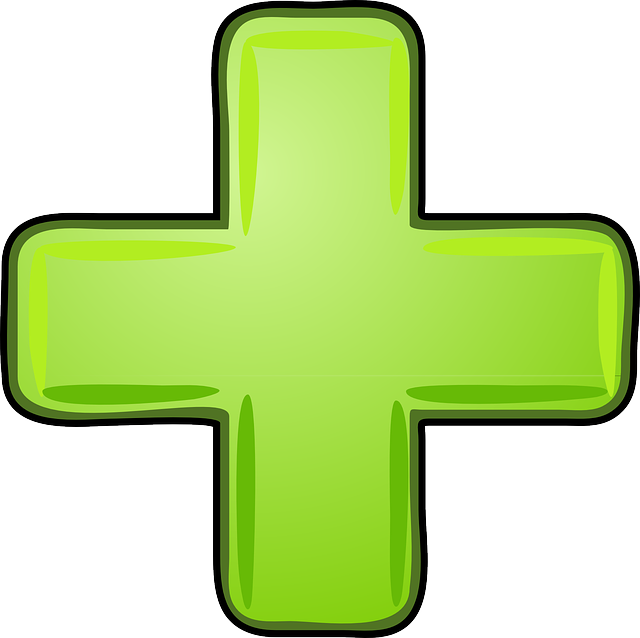Crisis Management Skills: Essential Tools for Overcoming Addictions from Heroin through Self-Help Books
Crisis management, integrated into comprehensive rehabilitation programs and enhanced by online reco…….
Over 15% US adults have used prescription painkillers not prescribed to them.
In the ongoing global battle against substance abuse, self-help books have emerged as powerful tools for individuals seeking recovery from heroin addiction. This detailed article aims to explore the multifaceted world of these resources, offering insights into their effectiveness, potential, and challenges. By delving into various aspects, from historical context to future trends, readers will gain a comprehensive understanding of how self-help books play a crucial role in supporting those on the path to recovery.
Definition: Self-help books for overcoming heroin addiction are written resources designed to guide individuals through the process of healing and rehabilitation from heroin abuse. These books provide practical strategies, insights, and motivational content tailored to address the unique challenges posed by this highly addictive substance.
Core Components:
Education and Awareness: Books in this category often begin with educating readers about heroin, its effects on the body and mind, and the mechanics of addiction. Understanding these aspects is fundamental for personal reflection and commitment to change.
Personal Stories and Testimonies: Sharing real-life experiences of individuals who have overcome heroin addiction offers inspiration and hope. These narratives provide a sense of relatability, encouraging readers to believe in their own potential for recovery.
Cognitive Behavioral Techniques: Many self-help books incorporate cognitive-behavioral therapy (CBT) strategies to help readers identify and challenge negative thought patterns associated with drug use. This involves learning new coping mechanisms and developing healthier behaviors.
Supportive Strategies: Authors offer a range of tools for managing cravings, dealing with triggers, improving communication, and rebuilding relationships—all essential aspects of long-term recovery.
Historical Context: The concept of self-help has roots in the 18th century, but its application to addiction treatment gained momentum in the late 20th century. As the war on drugs intensified, there was a growing recognition of the need for more personalized and accessible treatment options. Self-help books filled this gap, offering individuals a sense of agency and control over their recovery journey. Over time, these resources have evolved to incorporate the latest research and therapeutic techniques.
The impact of self-help books for overcoming heroin addiction is felt worldwide, with varying levels of adoption and success across different regions:
| Region | Impact and Trends |
|---|---|
| North America | The United States has seen a rise in the popularity of these books, driven by an increased focus on evidence-based self-help. Many authors collaborate with healthcare professionals to ensure their content is both effective and safe. |
| Europe | European countries have embraced self-help as a complementary treatment approach. Books are often translated into multiple languages, making them accessible to diverse populations. |
| Asia | In regions like China and Japan, where traditional medicine and mindfulness practices are prevalent, self-help books may be integrated into holistic recovery programs. The success of such approaches has led to increased demand. |
| Middle East | The Middle East has witnessed a growing need for accessible addiction treatment due to rising opioid use. Self-help books offer a relatively low-cost alternative, filling a critical gap in healthcare services. |
The market for self-help books related to heroin addiction is influenced by several economic factors:
Demand and Accessibility: As the global substance abuse crisis continues, there is an increasing demand for affordable and accessible treatment options. Self-help books step into this gap, offering a cost-effective alternative to traditional therapy or residential programs.
Investment Patterns: Private investors and publishing houses recognize the potential of this market, leading to dedicated funding for research and development. This investment drives innovation and improves the quality of available resources.
Economic Impact: The economic burden of substance abuse on societies is substantial. By empowering individuals with self-help tools, there is potential to reduce long-term healthcare costs associated with addiction treatment.
Technology has significantly enhanced the landscape of self-help books:
E-books and Apps: The digital revolution has made self-help content more accessible than ever. E-books and mobile apps offer interactive features, including progress tracking, personalized recommendations, and community forums, enhancing user engagement.
Virtual Reality (VR) Therapy: VR is being explored as a promising tool for exposure therapy, helping individuals confront their triggers in a controlled virtual environment. This technology can be integrated into self-help books to provide immersive experiences.
Artificial Intelligence (AI): AI-powered chatbots and virtual assistants can offer 24/7 support, answering questions, providing motivational messages, and guiding readers through difficult moments—all while learning from their interactions.
The development of self-help books for heroin addiction is influenced by various policies and regulations:
Drug Policy: Global drug policies play a significant role in shaping the availability and accessibility of these books. Some countries have more liberal approaches, allowing for diverse treatment options, while others may restrict certain aspects of self-help materials.
Healthcare Regulations: Local healthcare regulations determine how self-help resources can be prescribed or recommended within clinical settings. Collaboration between authors, healthcare professionals, and regulators is essential to ensure compliance and effectiveness.
Intellectual Property Rights: Authors must navigate copyright laws while sharing their work, especially when translating books for different languages and cultures. This ensures that their contributions remain protected and credited.
Despite their potential, self-help books face several challenges:
Stigma and Misunderstanding: One of the primary obstacles is the stigma associated with addiction and mental health issues. Some critics argue that self-help books may perpetuate stereotypes or oversimplify complex problems, hindering individuals from seeking professional help.
Individualized Support: While these books offer valuable guidance, they cannot replace personalized therapy for everyone. Critics emphasize the need for a combination of resources, including access to healthcare professionals and support groups.
Accessibility and Literacy: Ensuring that at-risk populations have access to these books is crucial. Language barriers, low literacy rates, and limited internet connectivity can hinder their effectiveness in certain communities.
Strategies to Overcome Challenges:
Community Outreach Programs: Collaborating with community centers, schools, and healthcare providers can help distribute self-help materials and raise awareness about addiction recovery resources.
Multidisciplinary Approach: Integrating self-help books into a broader treatment framework that includes therapy, support groups, and medical care can enhance their effectiveness.
Cultural Sensitivity: Authors should consider cultural contexts when creating content to ensure it resonates with diverse audiences, addressing specific challenges within different communities.
Summary: This book provides a comprehensive, step-by-step guide for individuals seeking recovery. It combines personal anecdotes with evidence-based strategies, offering practical advice on managing cravings, dealing with triggers, and rebuilding one’s life.
Success Factors:
Personalized Approach: Dr. Wilson uses her own experiences as a framework, allowing readers to relate to the challenges and feel motivated by her journey.
Practical Tools: The book includes worksheets, journaling prompts, and a 12-step action plan, empowering readers with tangible tools for their recovery.
Community Support: It encourages readers to engage with local support groups, fostering a sense of belonging and accountability.
Summary: This book introduces readers to mindfulness practices as a means of healing from heroin addiction. It combines ancient wisdom with modern psychological theories, offering meditation techniques and self-reflection exercises.
Key Learnings:
Mindfulness as a Healing Tool: The case study demonstrates how mindfulness can help individuals cultivate present-moment awareness, reduce cravings, and develop healthier coping mechanisms.
Cultural Integration: Maya Singh, an expert in both Eastern and Western psychology, adapts ancient practices to suit modern audiences, making them accessible and relevant.
Long-Term Benefits: Follow-up studies show that participants who completed this program reported sustained recovery rates higher than those who did not engage with mindfulness practices.
The future of self-help books for overcoming heroin addiction is promising, with several emerging trends:
Personalized Content: Advanced AI technologies will enable the creation of highly personalized self-help materials tailored to individual needs and preferences.
Virtual Reality Integration: As VR technology becomes more accessible, it will play a larger role in exposure therapy and immersive recovery experiences.
Global Collaboration: Authors and researchers from diverse backgrounds will collaborate, leading to culturally sensitive and relevant content that resonates with global audiences.
Integration with Digital Platforms: Self-help resources will increasingly be integrated into digital platforms, making them more interactive and engaging, with features like video tutorials, live webinars, and online support groups.
Self-help books for overcoming heroin addiction represent a powerful tool in the global effort to combat substance abuse. They offer individuals a sense of agency, provide practical strategies, and foster hope—all essential components of recovery. By navigating historical, cultural, and economic contexts, and leveraging technological advancements, these resources have proven effective in diverse settings.
While challenges remain, including stigma and access issues, the positive impact of self-help books is undeniable. As research and technology continue to evolve, the future looks bright for this genre, with potential to reach and assist countless individuals on their journey to recovery.
Q: Are self-help books a substitute for professional treatment?
A: Self-help books are not meant to replace professional treatment but can serve as a valuable supplement. For complex cases or severe addiction, medical professionals and support groups should be involved for comprehensive care.
Q: How do I know which book is right for me?
A: Consider your personal preferences, the book’s approach (e.g., cognitive-behavioral, mindfulness), and reader reviews. Some books offer a more structured path, while others provide a broader framework for self-exploration. Choose what feels most appealing and applicable to your situation.
Q: Can self-help books be effective for long-term recovery?
A: Yes, when combined with other recovery strategies like therapy, support groups, and medical care, self-help books can contribute to lasting positive changes. Many individuals report continued success in their recovery journeys years after using these resources.
Q: Are there resources available for those who cannot afford books?
A: Yes, many non-profit organizations and community centers offer free or low-cost self-help materials. Additionally, some authors provide free online resources, and public libraries often have a selection of relevant books.

Crisis management, integrated into comprehensive rehabilitation programs and enhanced by online reco…….

A holistic approach to sobriety, integrating evidence-based therapy, mindfulness practices, and trau…….

Boundaries, assertiveness training, and effective communication are key components of healing from h…….

Digital detoxing offers a powerful tool for those recovering from heroin addiction, helping them reg…….

Mindful movement classes combine ancient wisdom with modern mind-body practices to reduce stress and…….

High-risk situations triggered by stress, emotions, or past experiences pose challenges for those ea…….

Stress management is crucial for heroin addiction recovery, with workshops offering mindfulness, bre…….

Holistic wellness provides a comprehensive approach to recovering from heroin addiction by addressin…….

Setting boundaries, a key aspect highlighted in self-help books for overcoming heroin addiction, is…….

Self-care planning workshops are transformative tools for individuals recovering from heroin addicti…….